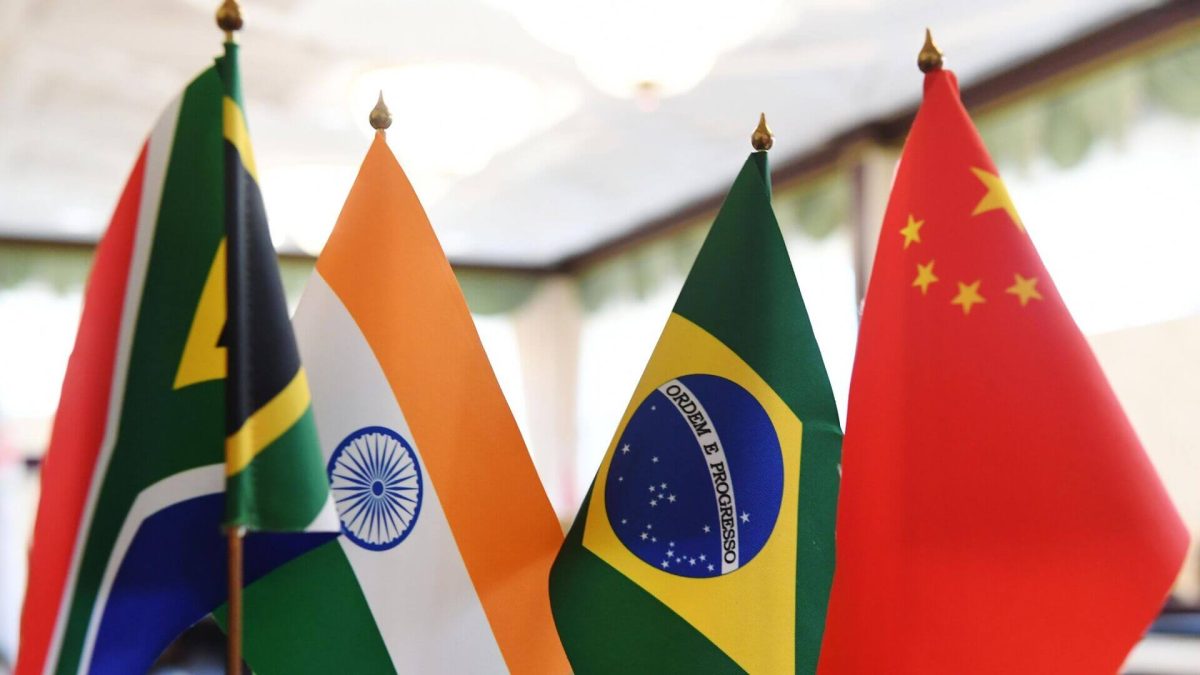BRICS: China Accelerates Yuan Adoption to Undermine Dollar in Global Trade
30.04.2025 16:00 1 min. read Alexander Stefanov
China is accelerating its push to make the yuan a dominant player in international trade, using global tensions and U.S.-led tariffs as a springboard to challenge the dollar’s longstanding dominance.
As more countries seek alternatives to the greenback, especially following the trade disputes sparked during Donald Trump’s presidency, China sees a strategic window to expand the yuan’s footprint in global commerce.
According to research from Renmin University’s International Monetary Institute, large businesses are increasingly favoring the yuan for cross-border transactions.
Settlements in Chinese currency climbed to 24% in the first quarter of 2025—up from 21.5% in mid-2024—highlighting growing momentum behind China’s efforts to internationalize its currency. Finance expert Yang Changjiang of Fudan University described the current moment as a critical opportunity for China to reshape the global financial landscape.
READ MORE:

BlackRock Buys Nearly $1 Billion in Bitcoin
With 68% of surveyed firms now using the yuan for transactions and over half engaging in forex trading with it, Beijing’s ambitions appear to be gaining traction. The volatility in U.S. Treasury markets has further fueled this shift, as capital flows that once reflexively moved toward the U.S. are now hesitating. China’s strategy also aligns with the broader BRICS objective of building a multipolar financial world where Washington has less sway.
-
1
Robert Kiyosaki Predicts 2025 “Super-Crash,” Urges Hoarding Gold, Silver, and Bitcoin
23.06.2025 13:31 2 min. read -
2
Billionaire Slams Meme Stock Hype and Sounds Alarm on U.S. Fiscal Health
15.06.2025 18:00 2 min. read -
3
Nassim Taleb Says Global Trust Is Shifting from the Dollar to Gold
22.06.2025 17:00 1 min. read -
4
Billionaire Investor Sees Dollar Crash If Key Support Breaks
18.06.2025 15:00 1 min. read -
5
Geopolitical Shockwaves Hit Ethereum Hard While Bitcoin Stays Resilient
22.06.2025 16:21 1 min. read
Robert Kiyosaki Predicts When The Price of Silver Will Explode
Robert Kiyosaki, author of Rich Dad Poor Dad, has issued a bold prediction on silver, calling it the “best asymmetric buy” currently available.
U.S. PCE Inflation Rises for First Time Since February, Fed Rate Cut Likely Delayed
Fresh data on Personal Consumption Expenditures (PCE) — the Federal Reserve’s preferred inflation gauge — shows inflation ticked higher in May, potentially delaying the long-awaited Fed rate cut into September or later.
Trump Targets Powell as Fed Holds Rates: Who Could Replace Him?
Federal Reserve Chair Jerome Powell is once again under fire, this time facing renewed criticism from Donald Trump over the Fed’s decision to hold interest rates steady in June.
U.S. National Debt Surge Could Trigger a Major Crisis, Says Ray Dalio
Billionaire investor Ray Dalio has sounded the alarm over America’s soaring national debt, warning of a looming economic crisis if no action is taken.
-
1
Robert Kiyosaki Predicts 2025 “Super-Crash,” Urges Hoarding Gold, Silver, and Bitcoin
23.06.2025 13:31 2 min. read -
2
Billionaire Slams Meme Stock Hype and Sounds Alarm on U.S. Fiscal Health
15.06.2025 18:00 2 min. read -
3
Nassim Taleb Says Global Trust Is Shifting from the Dollar to Gold
22.06.2025 17:00 1 min. read -
4
Billionaire Investor Sees Dollar Crash If Key Support Breaks
18.06.2025 15:00 1 min. read -
5
Geopolitical Shockwaves Hit Ethereum Hard While Bitcoin Stays Resilient
22.06.2025 16:21 1 min. read

